German journalist Bernhard Clasen visited the Zaporizhzhia Journalists’ Solidarity Center (JSC) of the National Union of Journalists of Ukraine (NUJU) on the day of the second anniversary of the opening of the Zaporizhzhia JSC.
“It is very nice to see that, as usual, there are many journalists here, the safety training has just ended, and some media workers, if necessary, remain here to work because there is appropriate equipment, organized working places, there is always internet and electricity despite blackouts in the city districts. I am also going to use the opportunity to write some working notes in JSC for the TAZ newspaper, where I work, and for several sites that are happy to publish my materials,” noted Bernhard Clasen.
The topics of Bernhard Clasen‘s articles are quite broad, and every time he comes to Zaporizhzhia, he has different topics planned for publications. Accompanied by journalists from the press service of the Main Department of the State Emergency Situations Service (SESS), which is managed by Yuliya Barysheva, a member of the Zaporizhzhia regional organization of the NUJU, the German journalist visited the front-line cities of Orikhiv, Huliaipillia, and Stepnohirsk, which suffer from enemy shelling every day, and made reports from the scene of the events after the bombing of the city. But most of all, as he admitted, Bernhard Clasen likes to visit our JSC, several times he gave briefings to colleagues from Zaporizhzhia and recorded interviews about the work of the Center with coordinators Nataliya Kuzmenko and Valentyna Manzhura. This time, he had a productive conversation with them again and highlighted several interesting topics for himself.
“Our journalists went on a press tour to the actively developing Shyroke Community,” says Valentyna Manzhura. “A lot is being done here for people, for their livelihood and development. So far, we have agreed on Bernhard Clasen‘s visit to this Center so that he can see with his own eyes the achievements of these indomitable people, talk with them, and then tell in German publications about how Ukrainians choose the right to a peaceful life, even in war conditions.
“Bernhard Clasen is very interested in German history,” says Nataliya Kuzmenko. “The industrial site in Zaporizhzhia, then Oleksandrivsk, was started by manufacturers from Germany at the beginning of the 19th century. And we offered him an interesting excursion to the regional Museum of local history and the Museum of Architecture, which was conducted by the famous tour guide Valentyna Vinnichenko. By the way, today, the works of Valentyna herself are also exhibited in the museum exhibition; these are unique works – camouflage nets made in the technique of weaving multi-colored ribbons; in this way, various patriotic pictures are created.”
“I am always delighted with the way I am received in Zaporizhzhia,” says Bernhard Clasen. “I work in both Kyiv and Kharkiv, but I really like the attention and help I receive here at the Journalists’ Solidarity Center because here I get everything I need – from a bulletproof vest to the necessary up-to-date information. Our cooperation is proof that journalists are important!”
Call the Zaporizhzhia JSC at 096 277 5352 (Nataliya Kuzmenko and Valentyna Manzhura, the Zaporizhzhia JSC coordinators). The Center’s address is 152 Sobornyi Avenue.
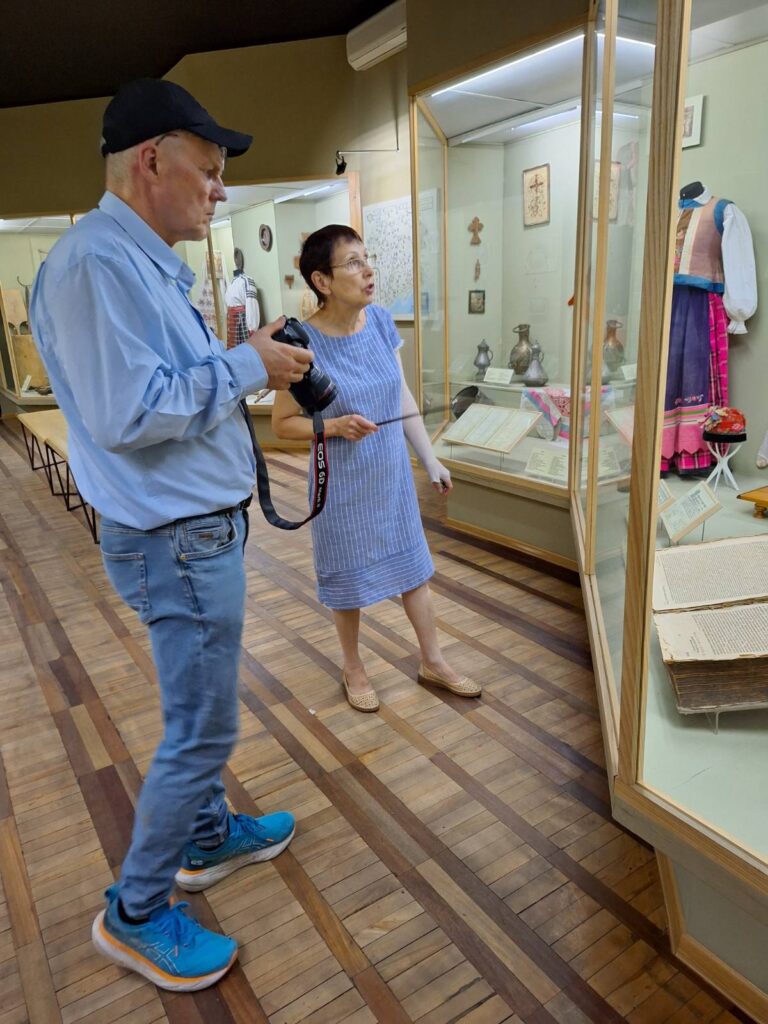
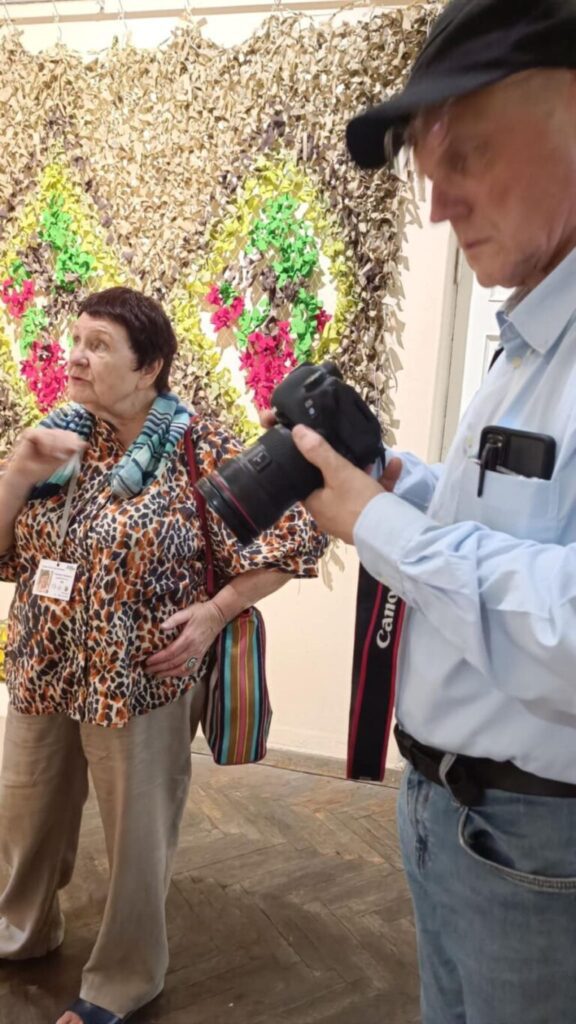
ABOUT JSC
The Journalists’ Solidarity Centers is an initiative of the NUJU implemented with the support of the International and European Federations of Journalists and UNESCO. The initiative is designated to help media representatives working in Ukraine during the war. The Centers operate in Kyiv, Lviv, Ivano-Frankivsk, Chernivtsi, Zaporizhzhia, and Dnipro and provide journalists with organizational, technical, legal, psychological, and other types of assistance.
ABOUT UNESCO
UNESCO is the United Nations Educational, Scientific, and Cultural Organization. It contributes to peace and security by promoting international cooperation in education, sciences, culture, communication, and information. UNESCO promotes knowledge sharing and the free flow of ideas to accelerate mutual understanding. It is the coordinator of the UN Action Plan on the Safety of Journalists and the Issue of Impunity, which aims to create a free and safe environment for journalists and media workers, thus strengthening peace, democracy, and sustainable development worldwide. UNESCO is working closely with its partner organizations in Ukraine to provide support to journalists on the ground.
The designations employed and the presentation of material throughout this digest do not imply the expression of any opinion whatsoever on the part of UNESCO concerning the legal status of any country, territory, city, or area or its authorities or concerning the delimitation of its frontiers or boundaries.
The authors are responsible for the choice and the presentation of the facts contained in this digest and for the opinions expressed therein, which are not necessarily those of UNESCO and do not commit to the organization.
Nataliya Vadymova
Photo by Dariya Zyrianova

 THE NATIONAL UNION OF
JOURNALISTS OF UKRAINE
THE NATIONAL UNION OF
JOURNALISTS OF UKRAINE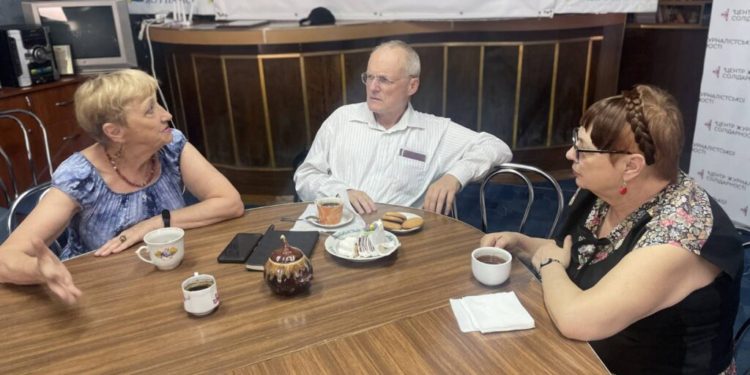
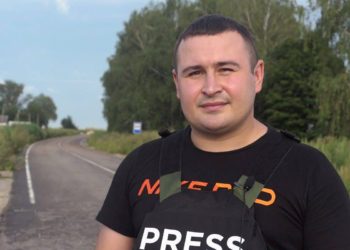
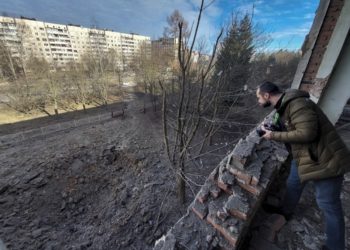
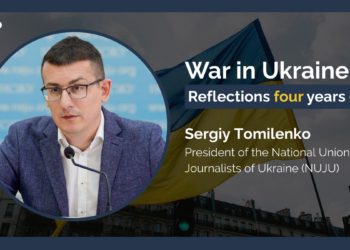













Discussion about this post